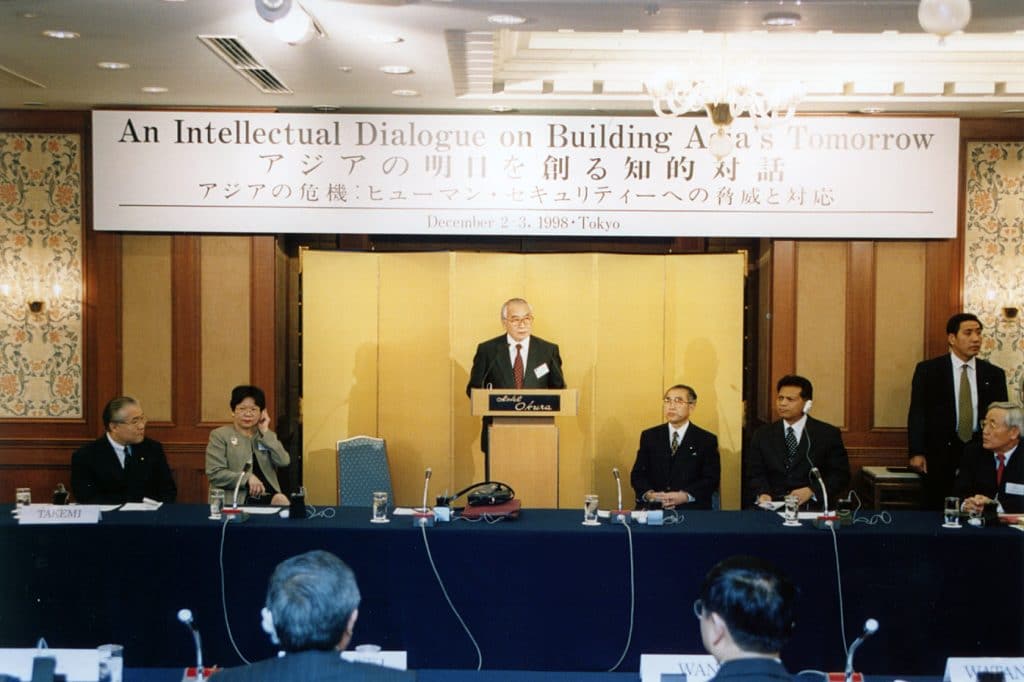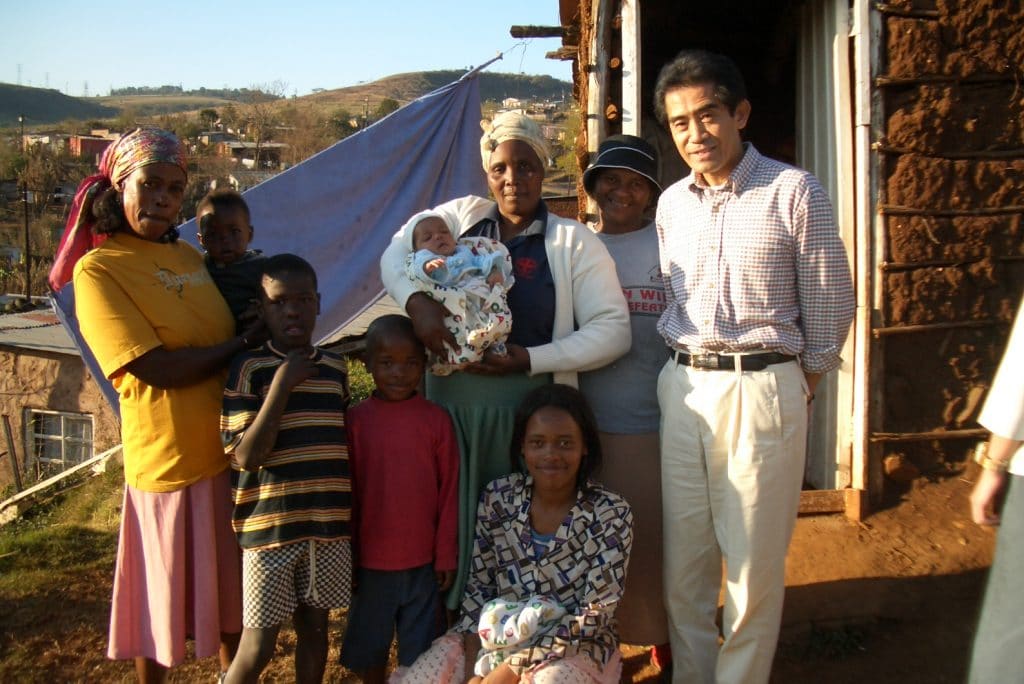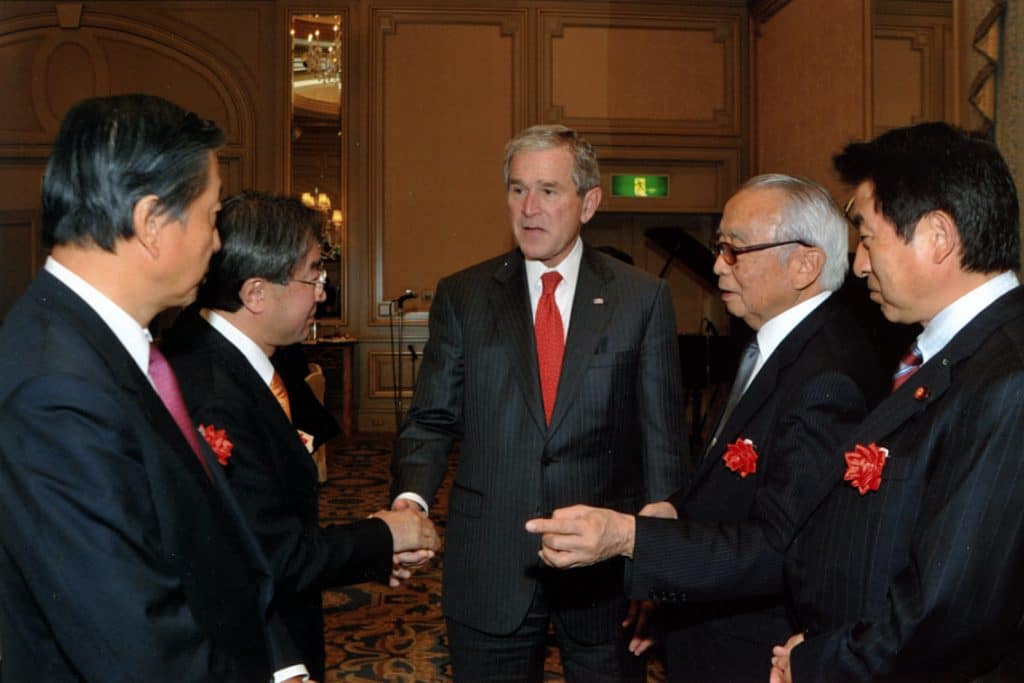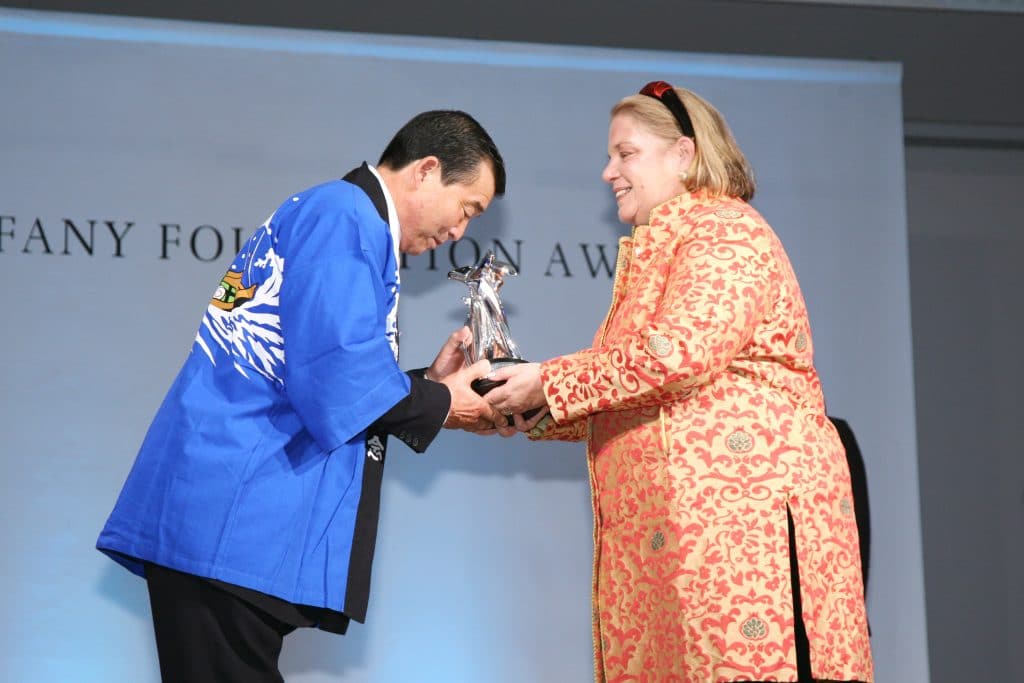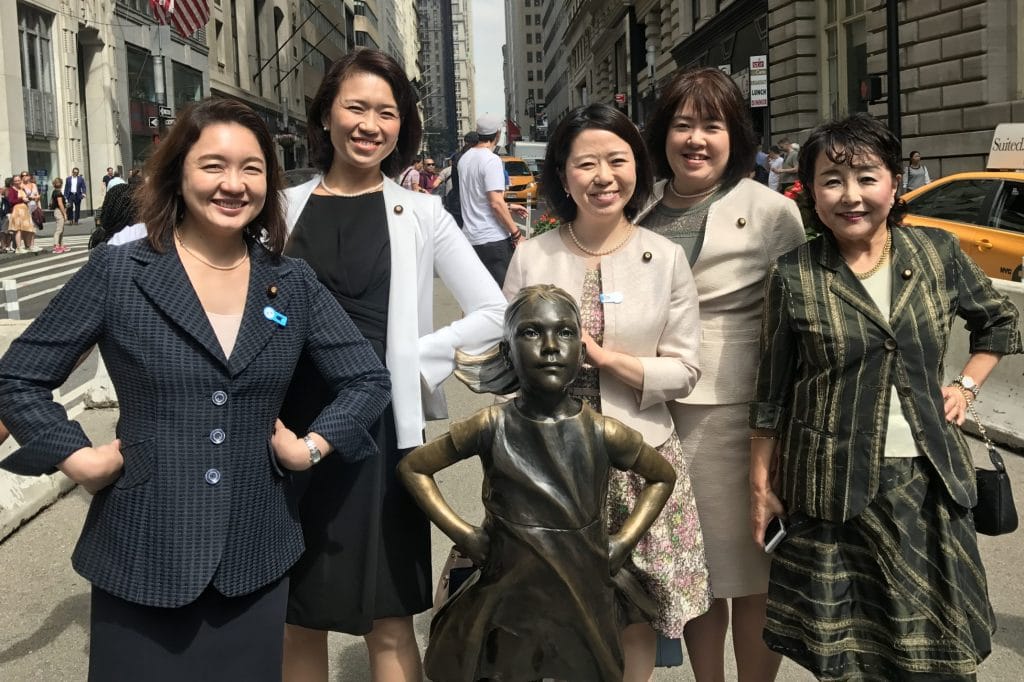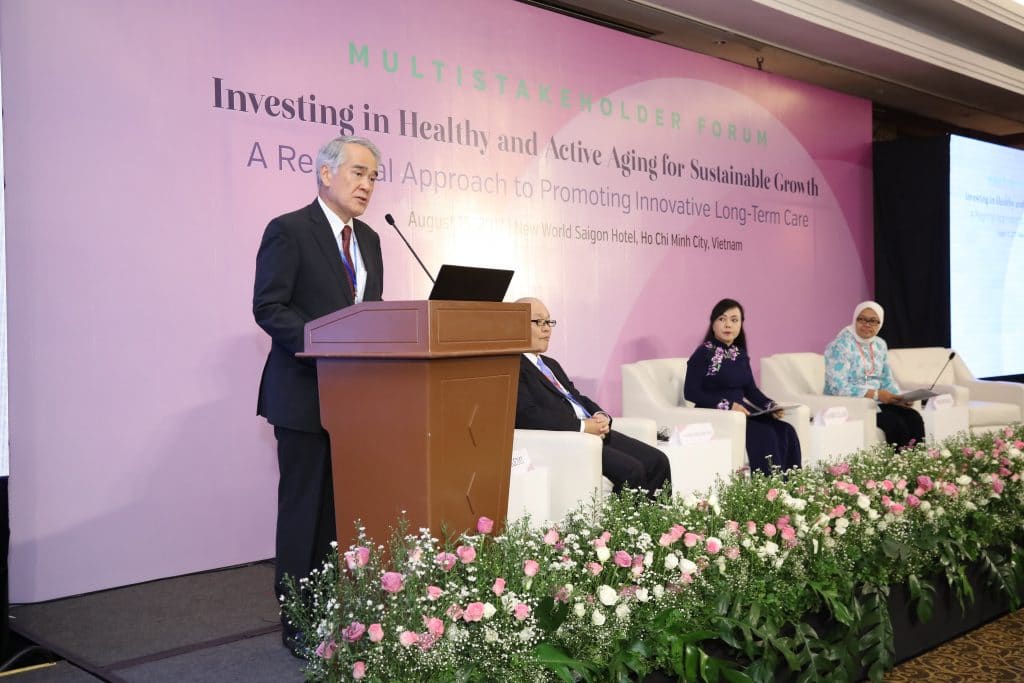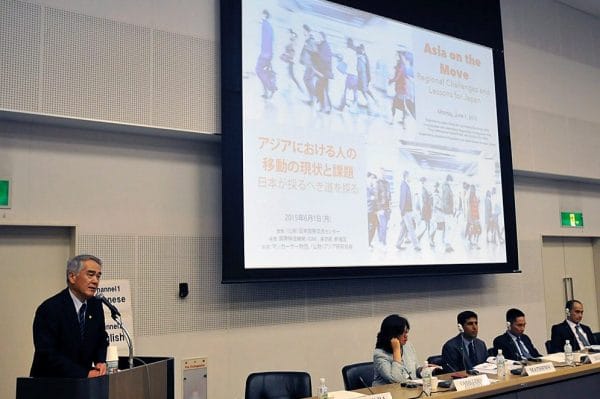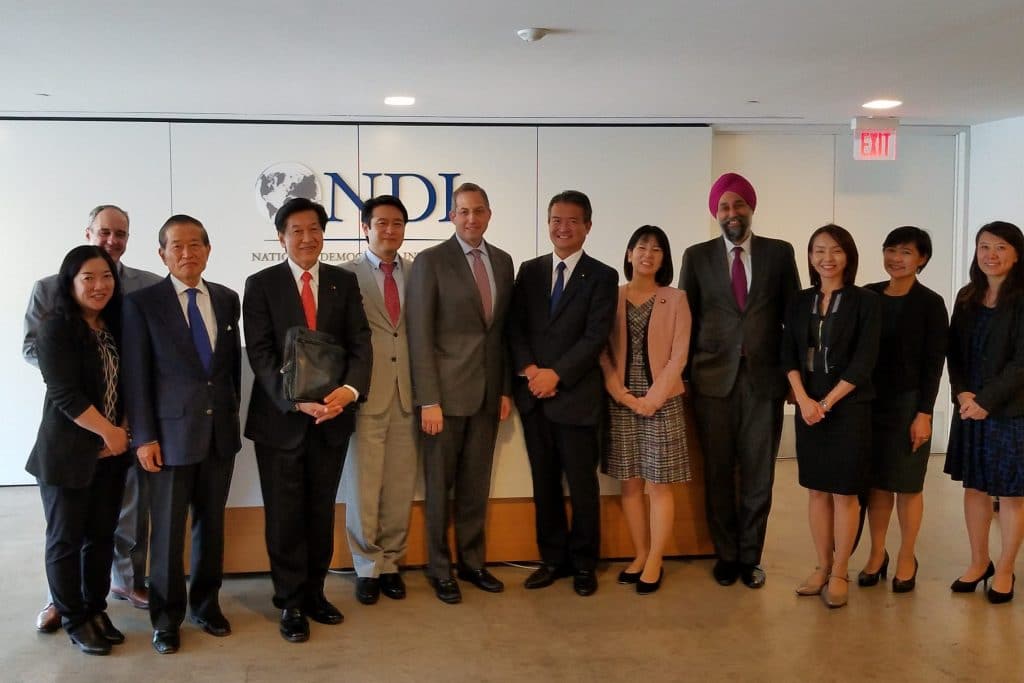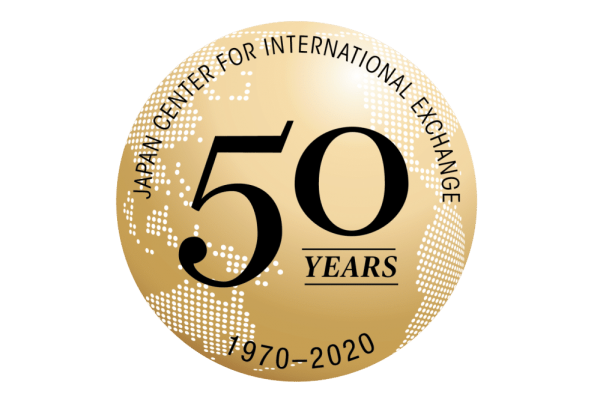The First 50 Years of JCIE
» History
In 1970, the Japan Center for International Exchange (JCIE) was established as one of the first independent international affairs institutes in Japan. Its sister organization, JCIE/USA, was launched in New York five years later as an American nonprofit organization.
At the time in Japan, the concept of a nongovernmental institution independent of government or business control becoming active in foreign policy and international political exchange was considered revolutionary. The organization was founded by 34-year old Tadashi Yamamoto, who earlier, during his studies in the United States, had been inspired by the activism and call to duty of John F. Kennedy and Martin Luther King Jr., and sought to bring that sense of hope for a more peaceful international order to Japan’s relations with the United States and the world. Yamamoto led JCIE until his death in 2012, growing it into one of the country’s most prominent international affairs institutes.
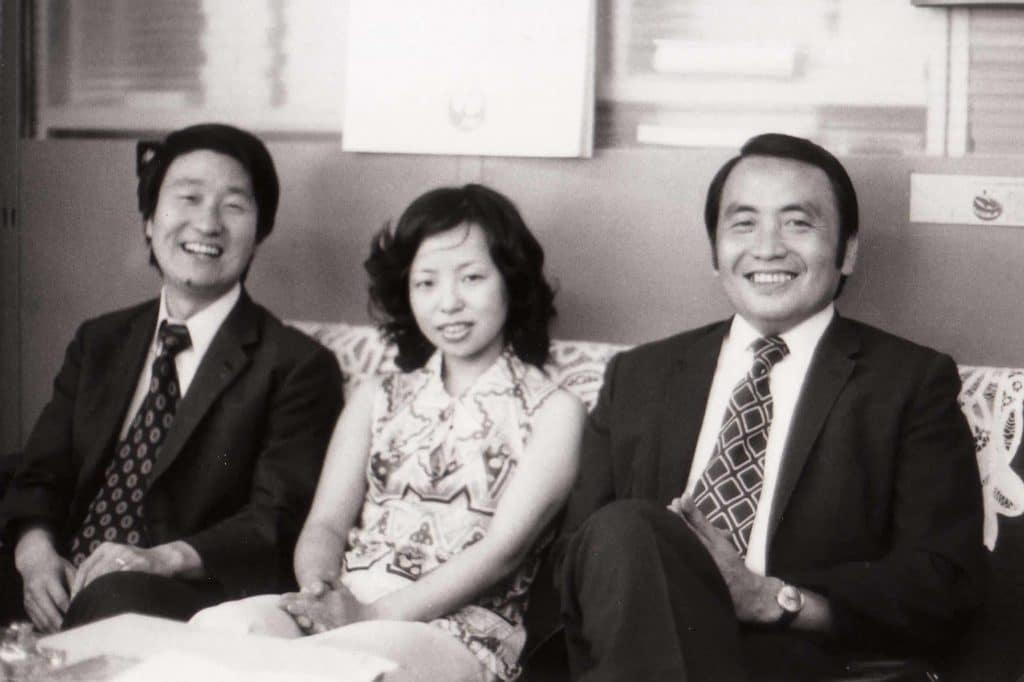
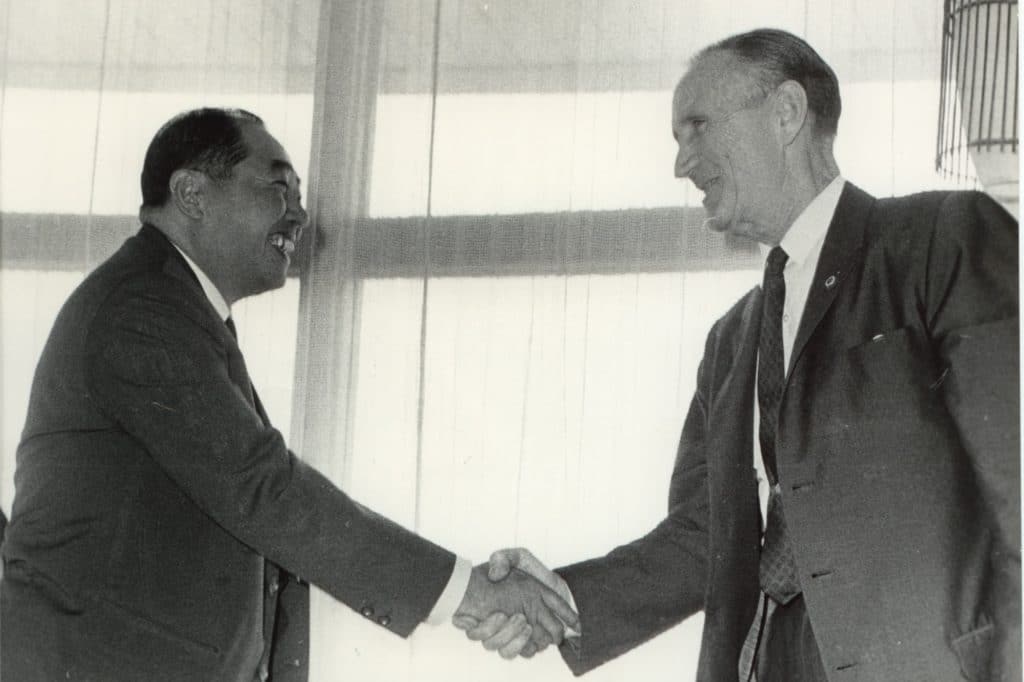
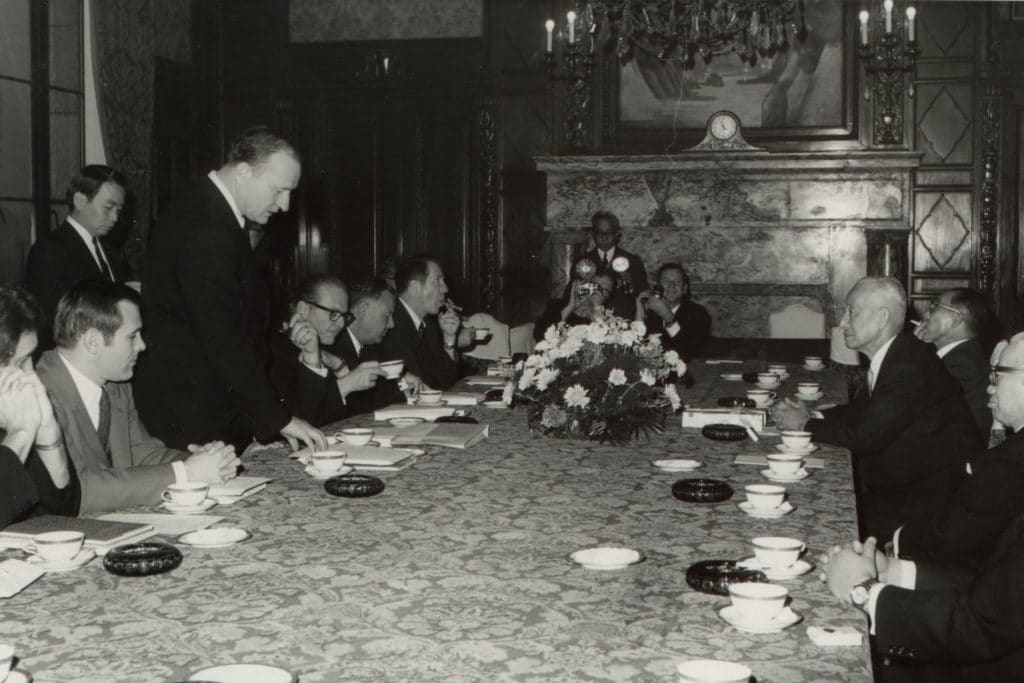
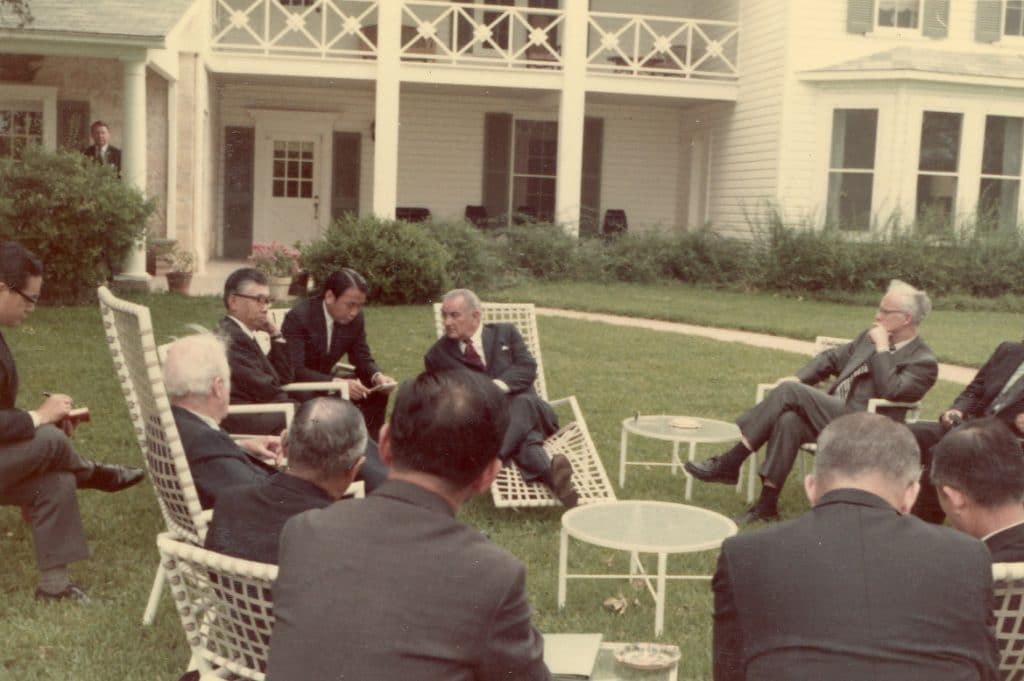
JCIE's Origins
JCIE’s roots trace back to an informal group that was convened in the early 1960s to make preparations for groundbreaking Japan trips by Attorney General Robert F. Kennedy to promote stronger US-Japan ties. In 1965, that group was reorganized as the Japan Council for International Understanding (JCIU), which went on to serve as the Japanese host for an important foreign policy dialogue, the 1967 inaugural Shimoda Conference. This was the first postwar meeting to convene political leaders and public intellectuals from the United States and Japan on equal footing. It was controversial at the time—leftist demonstrators opposed to all dialogue with the United States tried to shut it down and block the motorcade of its keynote speaker, Senate Majority Leader Mike Mansfield—but it came to be seen as a milestone in Japan’s reemergence on the world stage. The Shimoda Conference also played a critical role in setting the stage for the 1972 reversion of Okinawa to Japanese control, and it continued at regular intervals in subsequent decades, with the last one being held in 2011.
Inspired by Senator Mansfield’s words at the Shimoda Conference, JCIU launched the first ever US-Japan parliamentary exchange in 1968 with Ford Foundation funding to bring members of the US Congress and the Japanese Diet together for frank and substantive policy dialogues on challenges in the bilateral relationship. JCIU at the time was sponsored by Shinetsu Chemical Company and its dynamic CEO, Tokusaburo Kosaka. But in 1970, when Kosaka decided to pursue a political career, Yamamoto parted ways with his former boss, establishing JCIE to operate the US-Japan Parliamentary Exchange Program as well as the Japanese-American Teachers Exchange Program in a manner that was completely independent of business and government interests.
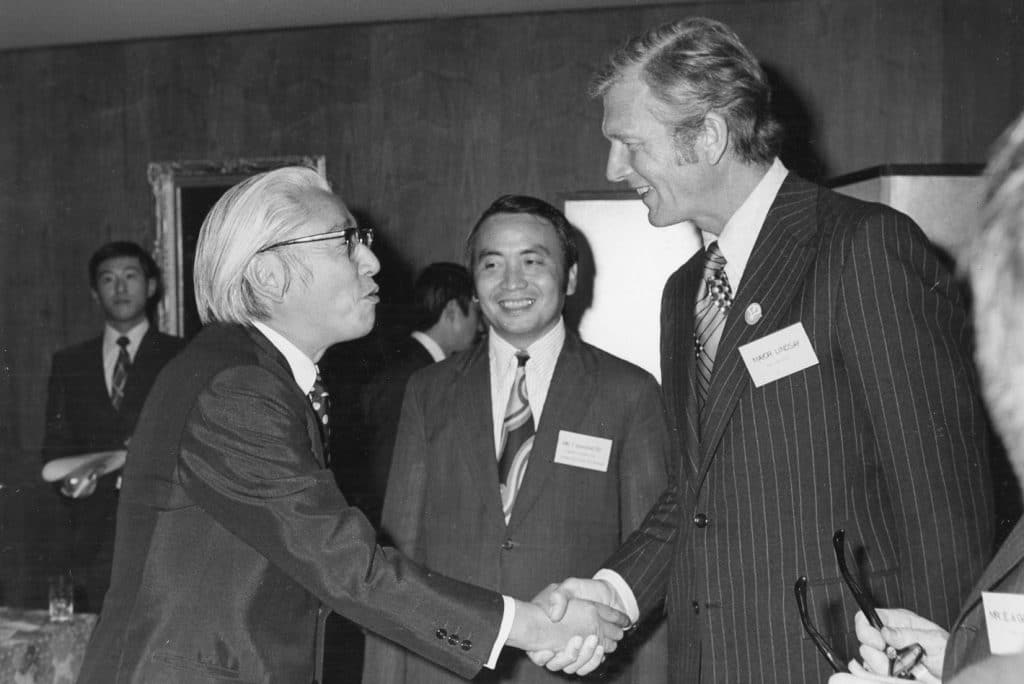
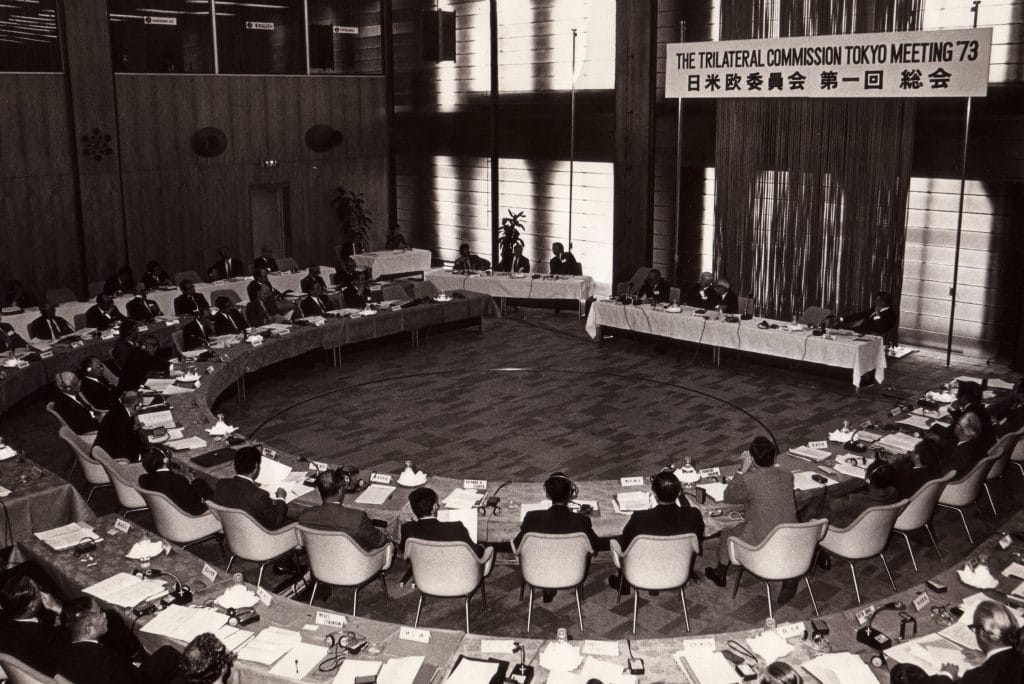
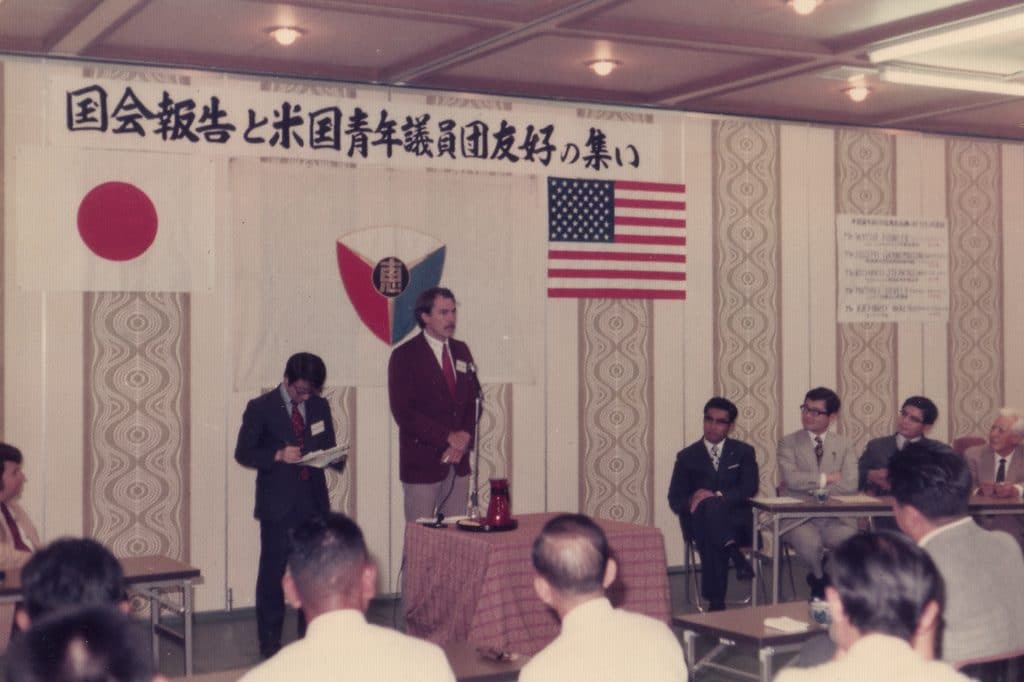
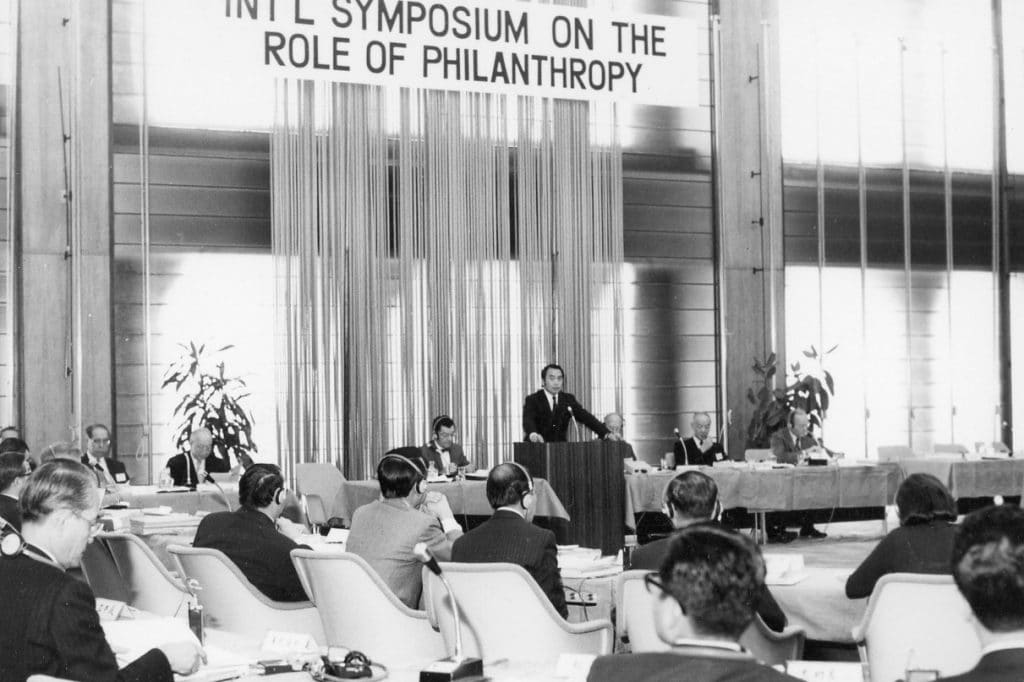
An Expanding Focus (1970s–1990s)
The US-Japan Parliamentary Exchange quickly grew, spurring the launch of parallel exchanges for local legislators (US-Japan Young Political Leaders Exchange Program in 1973) and Congressional aides (US Congressional Staff Exchange Program in 1982), which have brought more than 1,000 Japanese and Americans to one another’s countries to discuss ways of cooperating on shared challenges. These exchanges are credited by early participants, such as Thomas Foley, Donald Rumsfeld, and Howard Baker, for introducing a generation of American leaders to Japan and creating the personal ties that later were important in defusing trade tensions and strengthening bilateral cooperation in a range of areas. These programs often produced odd yet fortuitous pairings. For example, in 1975, JCIE arranged for Japan Socialist Party Secretary-General Saburo Eda to visit the White House to meet with Rumsfeld, who had become President Ford’s Chief of Staff. An important plank of the party’s platform was opposition to the US-Japan alliance, but as the first meeting between the Socialists and US government officials in 23 years, the visit opened the way for a new engagement with Japan’s main opposition party.
During the 1970s, JCIE extended its focus beyond US-Japan relations to ties with Asia, Europe, and other regions. When the Trilateral Commission was launched in 1973, David Rockefeller requested that JCIE help involve Japan as a full-fledged member, acknowledging Japan as an equal partner in global affairs, and JCIE has hosted the Asia arm of the Trilateral Commission ever since. Shortly thereafter, in 1975, JCIE convened the Europe-Japan Conference (Hakone Conference) to strengthen historically weak ties betweeen Japan and Europe. From 1977, it also began to organize intellectual dialogues with Korea and Southeast Asian countries that advanced postwar reconciliation and helped lay the foundations for deeper Asian regional cooperation. Later, in 1985, JCIE partnered to launch the UK-Japan 21st Century Group, and in 1993, it began co-organizing the Japanese-German Forum and the Korea-Japan Forum.
JCIE did not just expand its focus geographically; it also increasingly engaged other sectors of society, especially the nonprofit sector. In the early 1970s it began focusing on the importance of philanthropy and civil society in Japan, launching an ambitious International Philanthropy Project to educate Japanese foundations and corporations about global trends in philanthropic practices. This led to efforts to leverage international exchange to inspire the expansion of Japan’s philanthropic sector, starting with a study mission that was dispatched to the United States and Canada in 1974. Soon afterward, in 1979, JCIE drew on American models to establish the Asian Community Trust, Japan’s first community foundation, and in the 1980s it began helping Japanese corporations in the United States and elsewhere establish foundations so they could be good corporate citizens. In subsequent years, JCIE’s efforts to educate legislators and government officials on the important role of civil society in domestic and international governance helped pave the way for reforms such as the 1998 NPO Law.
Building on its growing expertise in the philanthropic and nonprofit sectors, JCIE also began facilitating philanthropic giving for donors in Japan and around the world, eventually operating giving programs for a range of major corporations, as well as through special funds created to help responders to major disasters and crises. By 2020, JCIE had facilitated more than ¥2 billion (more than US$30 million) in grants to more than 600 nonprofit organizations around the world.
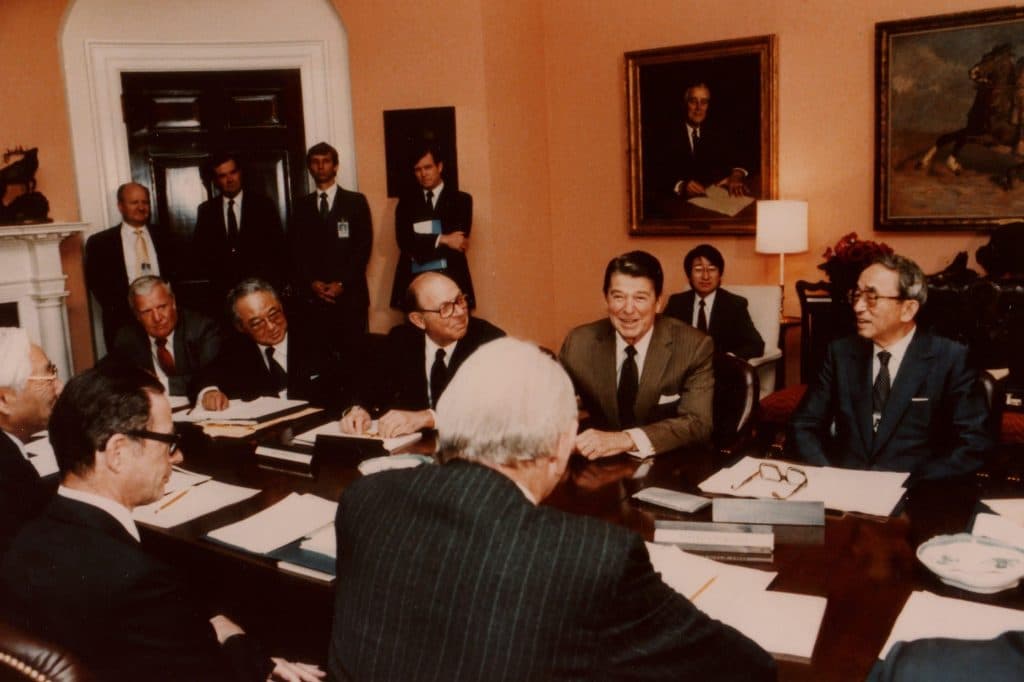
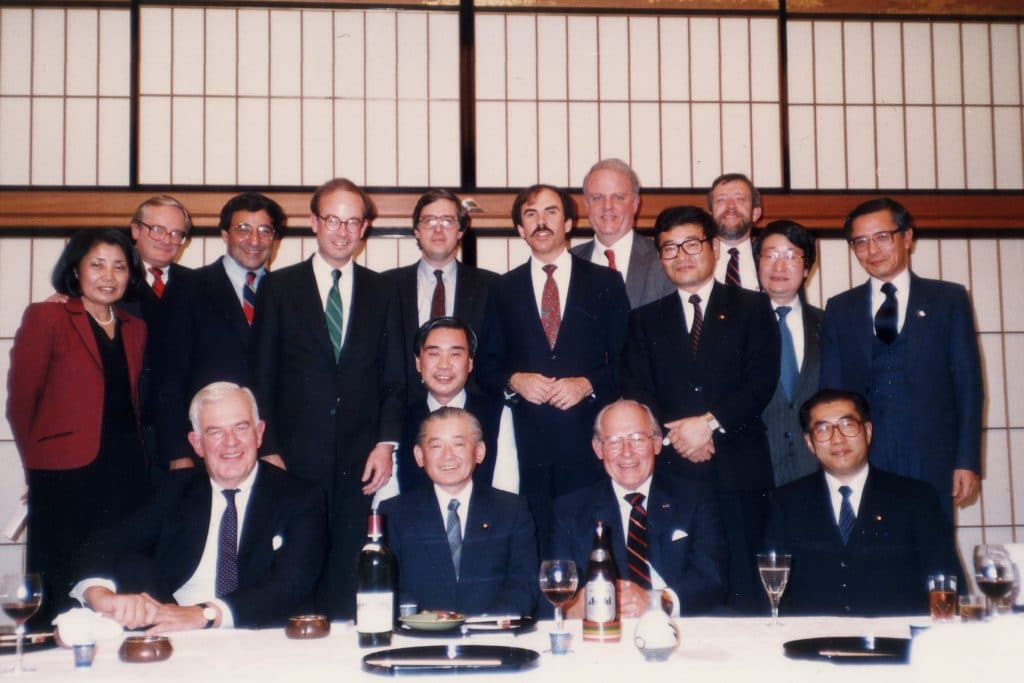
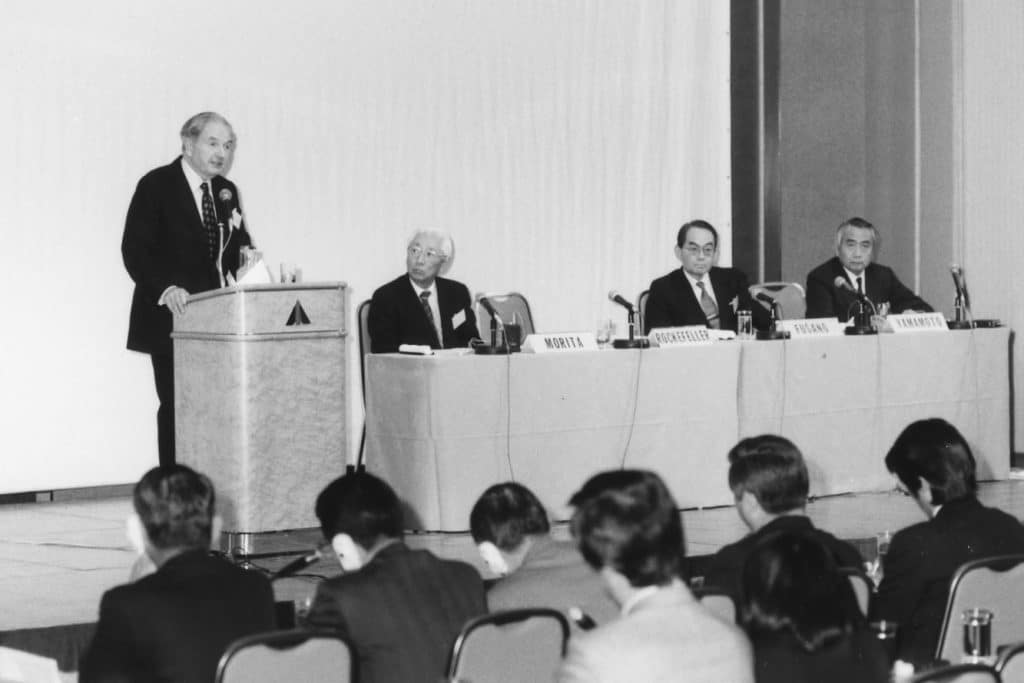
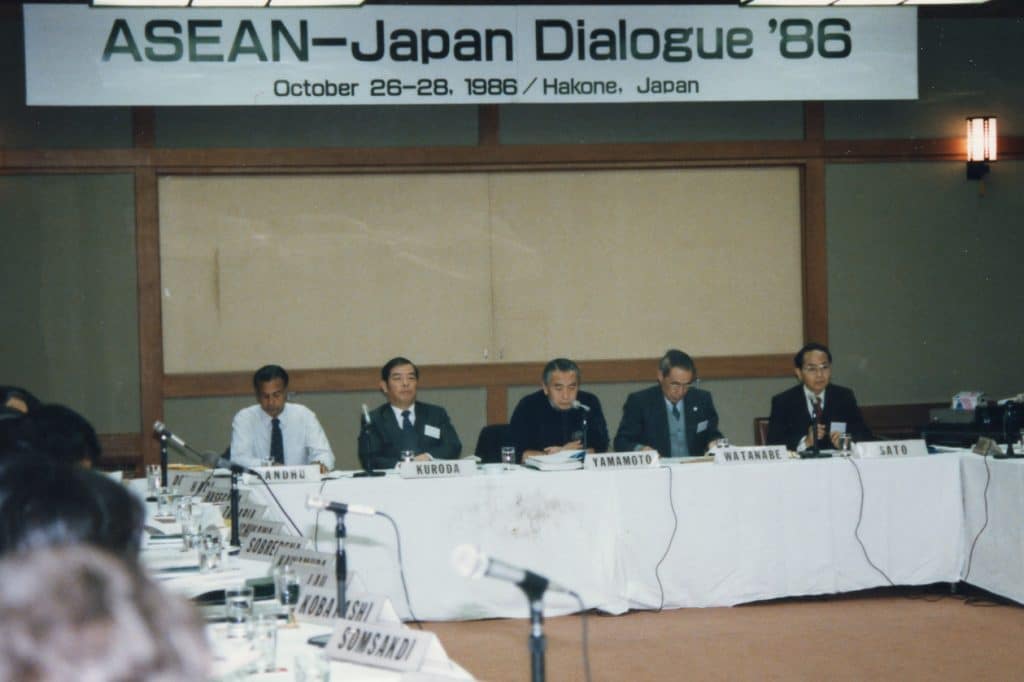
Tackling Global Challenges (Mid-1990s Onward)
From the 1990s, JCIE increasingly focused on strengthening international cooperation to deal with the complex issues associated with globalization, building on its bilateral dialogues and leadership exchanges to carry out research projects that promoted Japanese experts’ engagement in multinational networks and provided important scholarship and dialogues on critical challenges. It also launched a major research and dialogue initiative designed to broaden and strengthen intellectual ties within the Asia Pacific region and to contribute to the growing regional infrastructure.
In the mid-1990s, it began a series of initiatives to develop the concept of “human security”—which entails a comprehensive focus on the vulnerability and wellbeing of individuals and communities—exploring how to translate human security approaches into concrete development policies. By engaging up-and-coming politicians such as future prime minister Keizo Obuchi in a series of dialogues, JCIE helped pave the way for the Japanese government to adopt human security as a pillar of its foreign policy in the early 2000s.
This positioned JCIE to later undertake a set of initiatives to advance global health, which readily lends itself to human security approaches. In 2004, JCIE established the Friends of the Global Fund, Japan, to support the mission of the Global Fund to Fight AIDS, Tuberculosis and Malaria, and its multipronged approach of engaging legislators, policy thinkers, and the private sector has played a role in transforming Japan into one of the world’s leading supporters of the institution. Building on its work on communicable diseases, JCIE convened the Working Group on Challenges in Global Health and Japan’s Contributions to recommend how Japan could prioritize health as the host of the 2008 G8 Summit. This built momentum for Japan to elevate global health as a priority in both the summit and its ongoing diplomacy, while also sparking the creation of JCIE’s Global Health and Human Security Program.
When a massive earthquake and tsunami struck Japan in 2011, JCIE quickly mobilized, leveraging its experience in philanthropy and its strong international connections—especially its US-Japan networks—to help overseas donors support the response. JCIE ended up channeling nearly $7 million in donations to Japanese NGOs through funds it managed, serving as an information clearinghouse for other overseas donors, and utilizing studies on the response to spark policy changes in Japan that make NGOs better equipped to provide humanitarian assistance.
In the 2010s, JCIE also began to bring its international networks among legislators, policy experts, and civil society to bear on a number of other cross-border challenges. It launched a series of programs looking at migration and immigration into Japan, recommending ways to create more diverse and accepting communities. It began an initiative to share regional lessons about aging societies, and it started using its exchanges to promote women’s leadership, especially among Japanese legislators. In 2018, it also launched an initiative convening politicians, experts, and civil society leaders to explore how Japan could join with other leading countries to support more democratic governance in Asia.
As JCIE reached the 50-year mark in 2020, the world was again plunged into crisis—this time as a result of the coronavirus pandemic. JCIE quickly mobilized to support the responses by international organizations and policymakers to this crisis as it has at other critical turning points in the past, and looking ahead, it will continue to evolve, drawing on its experience and extensive networks to address the ever-changing challenges facing the world.
